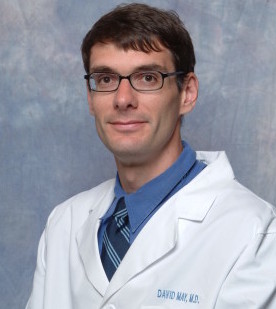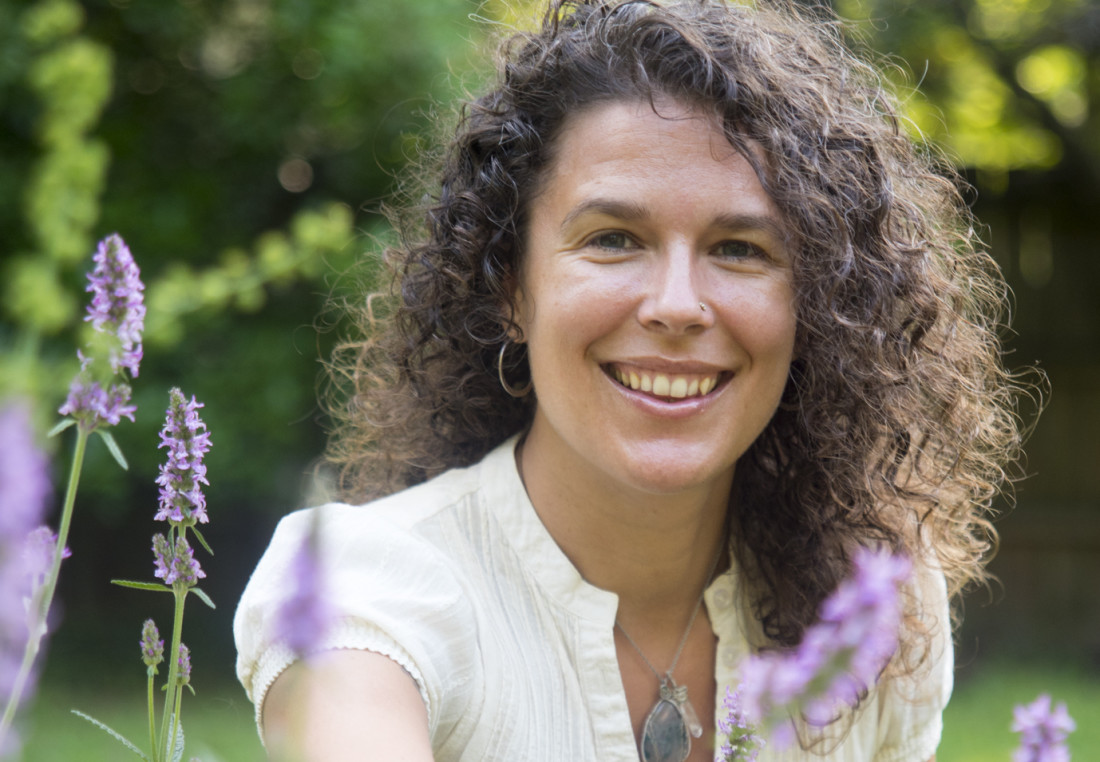When you sit down for Thanksgiving dinner, just who will you be feeding?
In addition to invited guests, you’re hosting trillions of bacteria in your gut. The beneficial ones promote digestion, make nutrients, secrete enzymes, produce hormones, eliminate infections and help stabilize your mood and behavior. These microbes rely on you for sustenance.
Your health suffers when these beneficial bacteria go hungry and become scarce. Why? A decline in the population of beneficial bacteria allows pathological microbes to take hold.
According to gastroenterologist David May, naturopath Rebecca Word and herbalist Lindsay Wilson, research has linked disturbance in the gut microbiota to a variety of disorders. Such conditions include obesity, autism, irritable bowel syndrome, inflammatory bowel disease, autoimmune diseases, allergies and metabolic syndrome — a collection of risk factors, including insulin resistance, that increase the likelihood of coronary artery disease, stroke and diabetes.
The roster of bacteria in your gut — which kinds are present in what proportions — depends not only on what you eat but also on which drugs you’ve taken.
Celebrity microbes
Gut microbiota are in the spotlight these days, in part because of the bacterium named Clostridium difficile (“C. diff” for short). According to a Centers for Disease Control and Prevention study released earlier this year, C. diff is a health care-associated infection “estimated to cause almost half a million infections in the United States in 2011, and 29,000 people died within 30 days of the initial diagnosis.” Those who take antibiotics, especially older adults, are most at risk: In more than 80 percent of the fatal cases, the patients were 65 years old or older.
Dr. Thomas J. Borody, director of Australia’s Centre for Digestive Diseases, cites research indicating the incidence of and mortality due to C. diff in the United States is much higher: An estimated 3 million new acute C. diff infections occur annually in the United States, with the infection contributing to approximately 100,000 deaths each year.
May, a physician at Asheville Gastroenterology Associates, explains antibiotics as a risk factor: “When the microbiota are disrupted with antibiotics such as clindamycin, penicillin and cephalosporin, then C. diff can take over and cause illness.”

He continues: “The incidence of C. diff infection has doubled in recent years. Although the infection can be community-acquired, it’s a major problem in hospitals and nursing homes. About 10 percent of us are carriers for C. diff, and as many as 50 percent of patients in nursing homes may be carriers. Then, when there’s some type of insult, or an antibiotic eliminates beneficial bacteria, C. diff is there to take over. That’s when you get into trouble.”
What’s more, C. diff persists in the form of spores resistant to typical environmental cleaning methods. “C. diff can live for months on surfaces such as beds, toilets, medical equipment,” May explains. “It’s called difficile for a reason.”
Symptoms of C. diff infection include diarrhea, abdominal pain and dehydration. “If it gets severe enough,” says May, “the colon gets so distended and inflamed that it’s no longer functional, and you need surgery. It can be a very serious illness; it can be fatal.”
Standard treatment for the infection includes antibiotics that specifically target C. diff, such as flagyl and vancomycin. Such treatment, says May, is 80 percent effective.
But if infection recurs or persists, May considers an alternative. “If we’ve had someone who’s had two severe bouts or three mild to moderate bouts,” he says, “then we start thinking about fecal augmentation.”
Beyond the ‘ick’ factor
Fecal augmentation, also called fecal microbial transplantation, introduces bacteria from the gut of a healthy donor into a patient’s intestine. Transplanted from the donor’s stool sample, the beneficial bacteria help rebuild the patient’s gut microbiota and restore the patient’s ability to eliminate the C. diff infection.
AGA physicians perform one or two such procedures a month as part of a sedated colonoscopy. “We’ve been doing fecal augmentation for about five years at our office,” says May, “but recently changed over to Mission Hospitals after a protocol was developed there using OpenBiome for a stool source.” (OpenBiome is a nonprofit stool bank that provides thoroughly screened samples at a relatively affordable cost.)
Fecal augmentation is about 90 percent effective in eliminating C. diff overgrowth, says May. “We tell a patient we’re transplanting bacteria to repopulate the normal flora in your gut. The ‘ick’ factor doesn’t play a big role. When people come to us to consider fecal augmentation, they’re really at their wits’ end with this illness. They’re relieved to have a therapy that works so well. Most people have been sick for nine months, and they often get relief in three to four days. It’s one of the most satisfying things we do.”
The U.S. Food and Drug Administration classifies fecal augmentation as an “investigational drug,” which allows physicians to use it only for C. diff and only after antibiotic treatment has failed.
The FDA does permit physicians to apply the procedure to other disorders in the context of clinical trials. Research supported by The Fecal Transplant Foundation, for example, studies fecal transplantation in relation to conditions such as inflammatory bowel disease, irritable bowel syndrome, ulcerative colitis, Crohn’s disease and autoimmune disorders.
Care and feeding of friendly bacteria
Gut microbiota play a prime role in eliminating C. diff overgrowth. Apparently, the gut microbiota also contribute to reducing — even better, avoiding — a long list of other miseries.
But how do we keep our gut microbiota healthy? “Only take antibiotics when you need to,” says May. “Antibiotics are only effective against bacterial, not viral, infections. The most important thing is to take antibiotics only when they’re clearly indicated.”
Steering clear of proton pump inhibitors — medicines meant to reduce the production of stomach acid — is important as well, says naturopath Rebecca Word of Blue Ridge Naturopathic Medicine. Like antibiotics, she explains, “they decrease biodiversity in the gut.” She cautions against artificial sweeteners as well, saying such products wage “chemical warfare on your gut flora.”
Keeping beneficial gut bacteria healthy requires both shielding them from destruction and continually replenishing their supply.
Herbalist Lindsay Wilson, who presented a “Restoring Digestive Health” workshop at the recent Organic Growers School’s Harvest Conference, recommends eating fermented foods. Her “all-star ferments,” common to traditional cuisines in cultures around the world, include yogurt, kefir, pickled vegetables, kombucha, sourdough, beet kvass and sauerkraut.
Although making pickled vegetables in your kitchen might at first seem foreign, says Wilson, “once you are in the rhythm of ferments, it takes no time at all.” She adds that, while probiotic supplements can support your gut microbiota, fermented foods give you an advantage: “Probiotic pills may have 50 million to 10 billion beneficial bacteria; one ounce of sauerkraut can provide as many as 10 trillion beneficial bacteria.
“We have different microbial cultures in our gut, based on what we’re eating,” Wilson continues. “Our gut is a garden.” To cultivate it, feed the friendly bacteria and help them proliferate, she says. Wilson suggests eating dandelion greens, radicchio, endive, onions, leeks, garlic, jicama, asparagus and chicory root. She also recommends consuming gelatin-rich bone broths, high-fiber vegetables and soaked or sprouted nuts, grains, seeds and legumes.
Thank goodness
Your gut health depends on what you eat and how you eat. “The nervous system is the first determinant of good digestion,” says Word. She advocates a relaxed, unhurried setting for meals.
“Eating is so much more than what we put in our mouths. Turning off the television, chewing thoroughly, taking time to really taste our food, sharing meals, enjoying the time with friends and family — these are the foundation for nourishing our bodies and our lives.”
Word adds gratitude to the list of factors that nourish us. We can be grateful not only for the food that we take in but also for the beneficial bacteria that we host within us and for the gastrointestinal channel that connects us with the world at large.
More Info
American Gastroenterological Association
gastro.org
David May
Asheville Gastroenterology Associates
ashevillegastro.com
Rebecca Word
Blue Ridge Naturopathic Medicine
blueridgenaturopath.com
Centers for Disease Control and Prevention
cdc.gov
Clinical Trials
clinicaltrials.gov
The Fecal Transplant Foundation
thefecaltransplantfoundation.org
Gut Microbiota Worldwatch
gutmicrobiotawatch.org
Lindsay Wilson
Madhu Wellness
madhupamaypop.com
OpenBiome
openbiome.org



Before you comment
The comments section is here to provide a platform for civil dialogue on the issues we face together as a local community. Xpress is committed to offering this platform for all voices, but when the tone of the discussion gets nasty or strays off topic, we believe many people choose not to participate. Xpress editors are determined to moderate comments to ensure a constructive interchange is maintained. All comments judged not to be in keeping with the spirit of civil discourse will be removed and repeat violators will be banned. See here for our terms of service. Thank you for being part of this effort to promote respectful discussion.